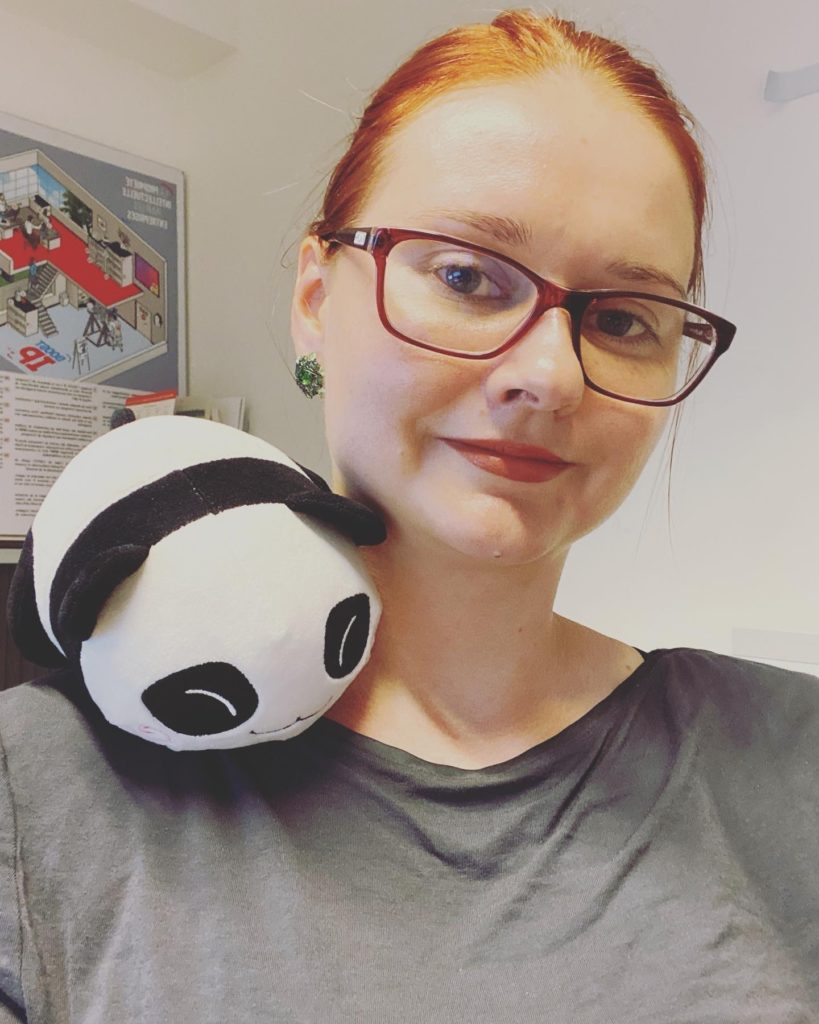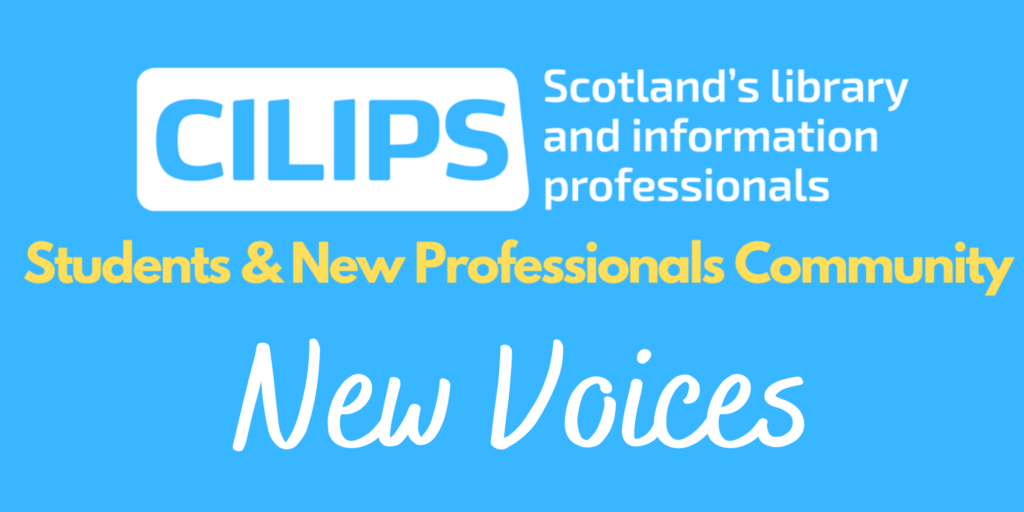New Voices RGU Student Series 2022 – Natalia Slioutova
Category: Blog, New Voices, New Voices, RGU Student Series 2022
In this 2022 Student Series for the New Voices blog, the CILIPS Students & New Professionals Community will be sharing the views of Robert Gordon University students from the MSc in Information and Library Studies. With special thanks to Dr Konstantina Martzoukou, Teaching Excellence Fellow and MSc Course Leader, for organising these fantastic contributions.
 Today, we hear from Natalia Slioutova (@Yane_Natta89), who is a Russian living and working in wee Luxembourg (‘no, it’s not in Germany. We are our own country, I swear!’) Natalia is an avid cosplayer, LARPer, draws for fun and loves pandas (and books)!
Today, we hear from Natalia Slioutova (@Yane_Natta89), who is a Russian living and working in wee Luxembourg (‘no, it’s not in Germany. We are our own country, I swear!’) Natalia is an avid cosplayer, LARPer, draws for fun and loves pandas (and books)!
Improving Information, Media and Digital Literacy in Higher Education Distance Learning
Technology, particularly the internet, ‘has transformed the way individuals live, work, conduct business, and create and manage information’ (Al-Qallaf, Al-Mutairi 2016 p.522).
Social media, educational pages, opinion blogs, funny cat videos – no matter the topic, the world wide web seems to have it all. The sheer amount of information that has become available to us in such a short time is nothing short of impressive. However, navigating through such a jungle of sources can be overwhelming and confusing. How do I distinguish between serious sources of information and the so- called ‘fake news’? How do I formulate my queries to get the desired results? Where do I even start looking? It seems that in order to be able to use the internet efficiently, one has to develop specific skills and learn to adapt to the ongoing changes quickly. Thus, digital literacy – and consequentially, media and information literacy – has crystalized itself as an essential life skill.
‘Digital literacy consists of the skills, knowledge and understanding that enable critical, creative, discerning and safe practices with digital technologies’ (Hague, Payton 2011). It has become necessary that children learn those skills to be able to understand, manage and use the information, media and technologies (Kivunja 2015) available to them. In education, new pedagogical practices have been implemented to bring information and communication technologies into the classrooms. One such practice proposes the use of social media tools in order to support communication, collaboration and engagement from all participants. This appears to be a suitable method, seeing as most people use social media on a daily basis and have at least basic knowledge on how to use it. Through the medium of social media, a teacher can then approach the topic of digital literacy. Children will learn about digital safety (eg: safe passwords, appropriate online behaviour, trustworthy pages and providers) and later on, about digital research practices (eg: identifying scholarly sources, analysing content, proper citation of online sources).
This brings me to the next reason why digital literacy is so crucial in a scholarly setting: distance learning. Many universities and other lifelong learning institutions propose distance learning courses in order to reach as many people as possible. More than in-person learners, distance learners depend on technology and digital literacy skills, as it is the primary form of communication between student-teacher and student-student groups (Encyclopedia Britannica, accessed 20 November 2021).
The following approaches can be used to provide maximum support to distance learners and help them develop their digital literacy skills :
- Mandatory workshops with a focus on the correct use of technological tools used by the teaching institution, where students are given the opportunity to try out all the functions in a controlled and supervised environment
- Basic tutorials (in video and written format) on how to use online databases and libraries for research and how to determine the credibility of online
- Making sure that information is easily accessible to all (taking into consideration people with learning disabilities). A handy guide by the Change organization provides pointers on making information more accessible for people with learning disabilities (Accessed 20 November 2021)
- Regular Q&A sessions with lecturers to ensure that the distance-learning students receive the same amount of support as those on campus. Twice a month on a set day, should be enough (RGU has this practice already in place).
In any case, as technology is constantly evolving and changing, the process of developing digital, information and media literacy is never-ending, and education institutions have to do their part in teaching and maintaining those skills.
Thank you to Natalia for sharing these insights into why digital literacy is essential for distance learners and her ideas about what can be done to ensure that information skills are accessible to all. Stay tuned for more in the 2022 New Voices RGU Student Series coming soon and be sure to check out the rest of CILIPS SNPC’s New Voices blog.
